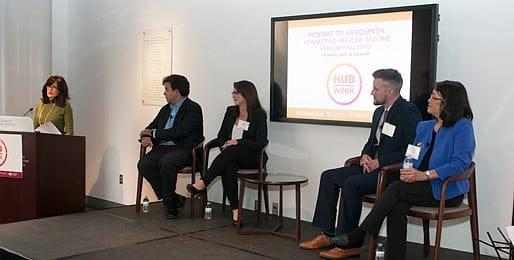Exploring the harmonious convergence of music and medicine

@RudyTanzi is the search phrase linking the Twitter-verse to the world renowned Alzheimer's researcher and Professor of Neurology at Massachusetts General Hospital and Harvard Medical School. Late last month an alternative link to his thoughts, and those of three distinguished colleagues, was offered to guests attending the HUBWEEK forum Mozart to Aerosmith at the Russell Museum of Medical History and Innovation on the campus of MGH.
Joyce Kulhawik, former arts and entertainment anchor at WBZ , introduced attendees of the event to clinicians who shared anecdotes, video essays and quantifiable evidence that art is an empathic tool, an expressive language, with a unique ability to reach patients, families and inspire healers. The collective of brilliant, occasionally counter-intuitive thinkers, offered first hand accounts of how music in particular activates widespread neurological networks in the brain, strengthening hemispheric connections like no other artistic expression can. For them, music has medicine in its melodies.

